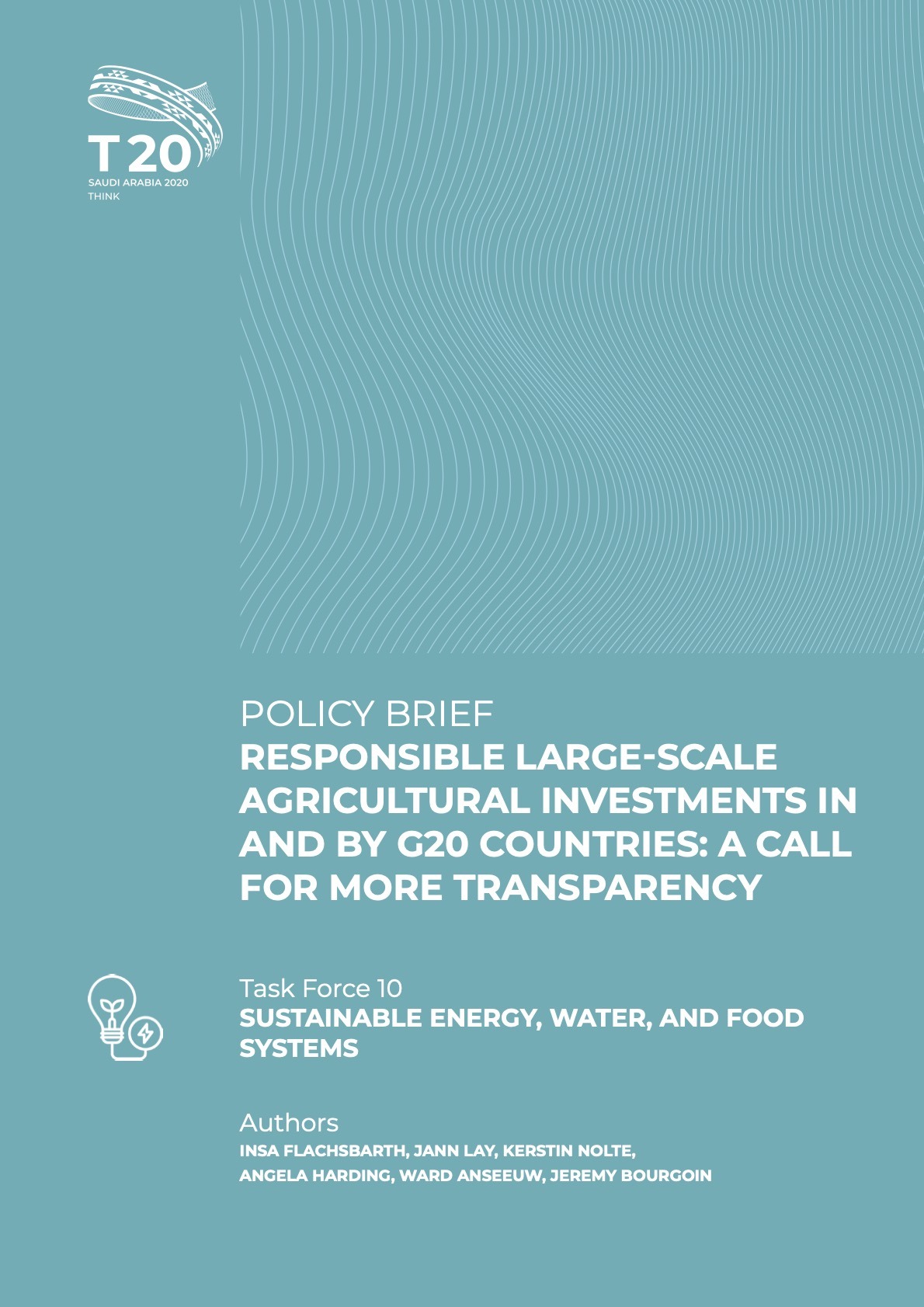︎

Jann Lay
German Institute for Global and Area Studies (GIGA)
Jann Lay is Head of the Research Programme “Globalization and Development” at the German Institute for Global and Area Studies (GIGA), Hamburg. As adjunct professor, he teaches development economics at the University of Goettingen. His work is on various facets of economic development in the Global South, in particular in Africa, including on foreign investment and global value chains, employment and labour markets as well as issues related to energy, climate and development.
MORE ABOUT JANN LAY >2023
Tevin Tafese, Jann Lay, and Van Tran
From Fields to Factories: Special Economic Zones, Foreign Direct Investment, and Labour Markets in Vietnam
Vietnam has integrated into global value chains through the establishment of special economic zones (SEZs). This paper examines the local labour-market impacts of this programme, building on a unique dataset of SEZs in combination with labour force survey (LFS) data. Using historical satellite image...

Nora Aboushady, Tilman Altenburg, Inga Carry, Jann Lay, Melanie Müller, Mark Schrolle, Frauke Steglich, Lea Strack, Tevin Tafese, Rainer Thiele
The European supply chain law is coming after all – What can we make of the compromise?

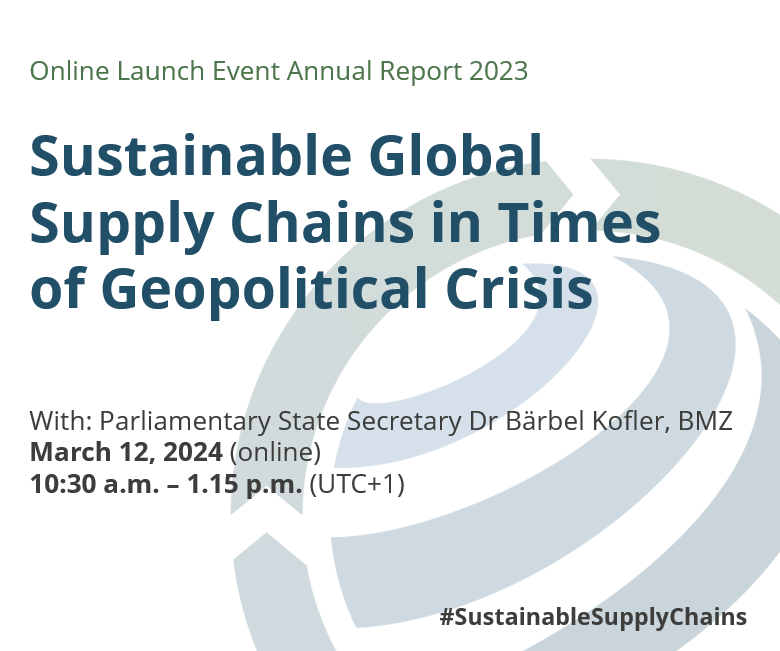
Jann Lay, Tilman Altenburg, Melanie Müller, Tevin Tafese, Rainer Thiele, Frauke Steglich
Europäische Lieferkettenregulierung nicht aufhalten! Sie ist ein wichtiger Schritt für eine bessere Globalisierung
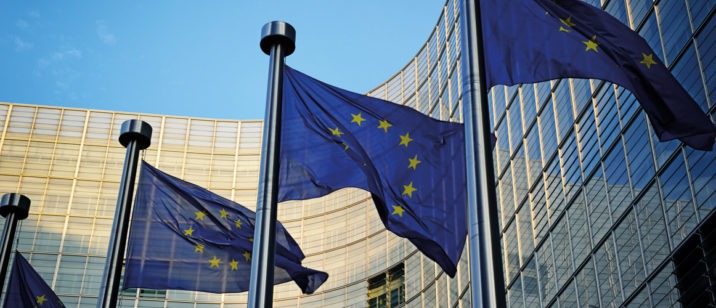
2023
“Sustainable global supply chains in times of geopolitical crises” Annual Report 2023
The overarching topic of this year's report is "The Role of Geopolitics in Global Supply Chains", highlighting ways in which recent geopolitical and geo-economic developments are shaping and influencing current debates and policy processes around global supply chains (GSCs). Following...
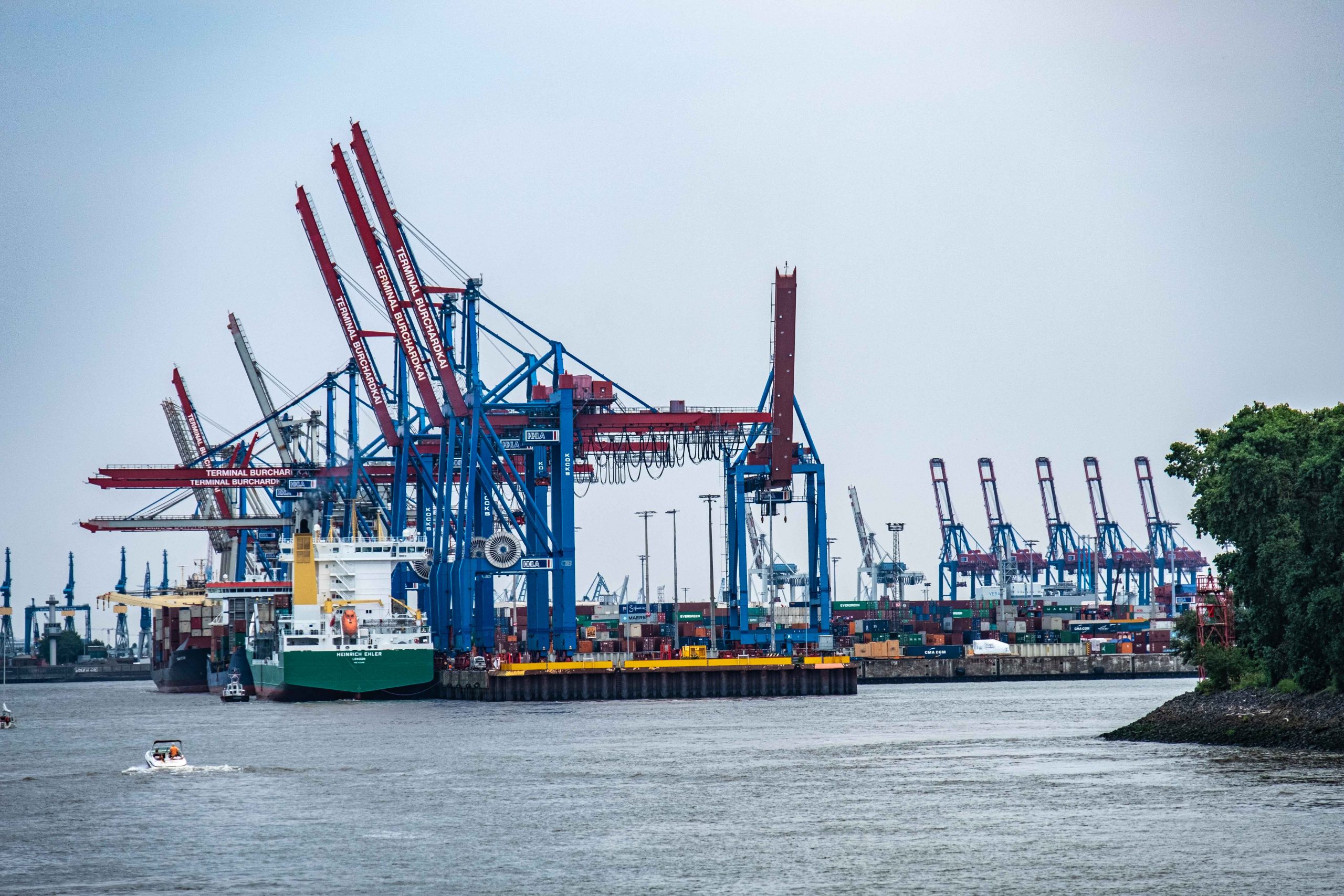
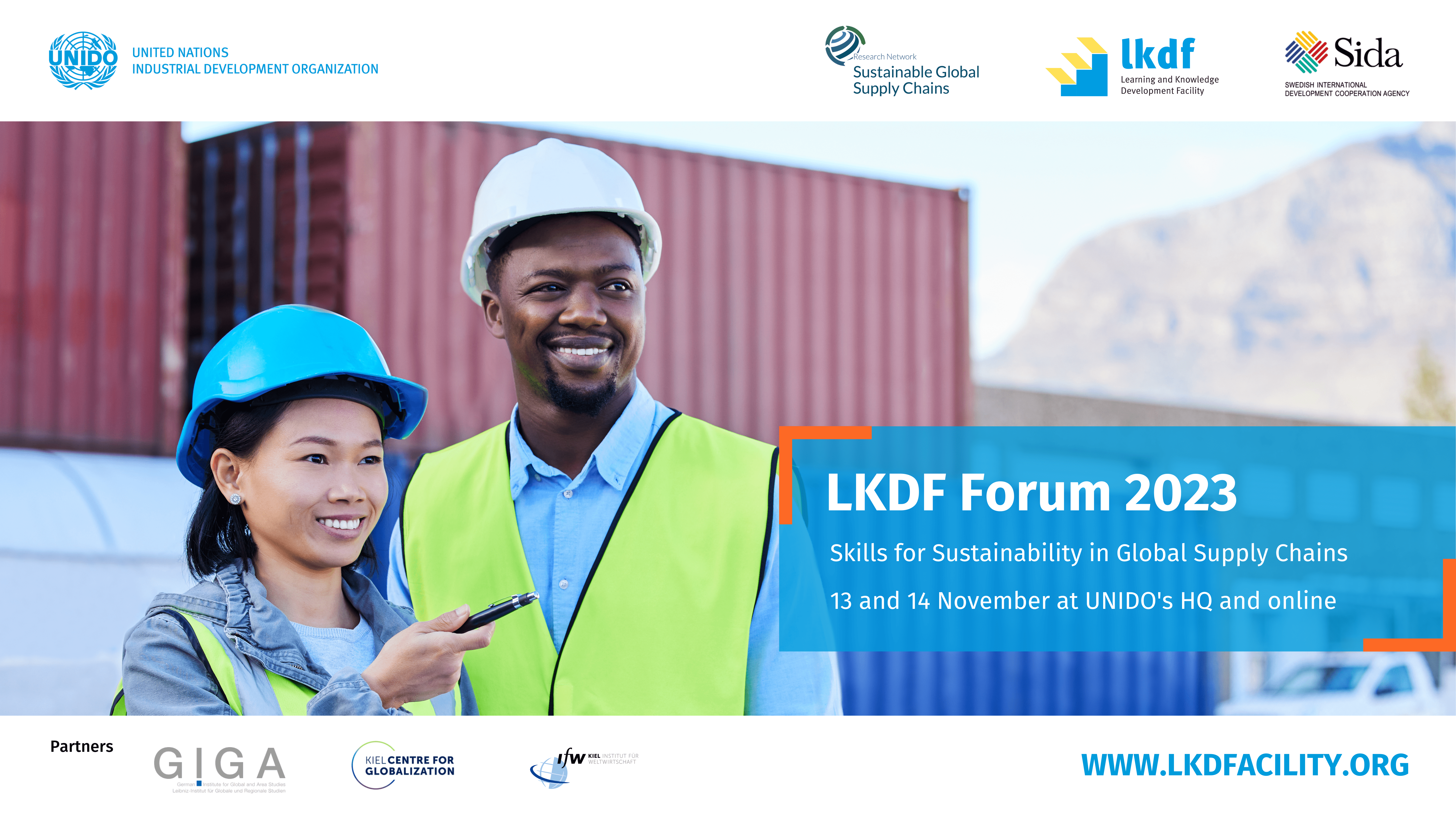
2022
Sustainable Global Supply Chains Report 2022
Global Supply Chains (GSCs) have become a key feature of globalisation. Production processes are increasingly broken down into specific tasks and organised across national borders. They are organised and governed by “lead firms” that set many of the standards according to which other firms in th...

2021
Holger Görg, Jann Lay, Stefan Pahl, Adnan Seric, Frauke Steglich, and Liubov Yaroshenko
Multilateral coordination and exchange for sustainable global value chains
While participation in global value chains (GVCs) is widely associated with benefits for countries’ development and growth, its environmental and social costs become increasingly evident. Representing core buyer and supplier countries in GVCs, the G20 is particularly suited to tackle this global c...
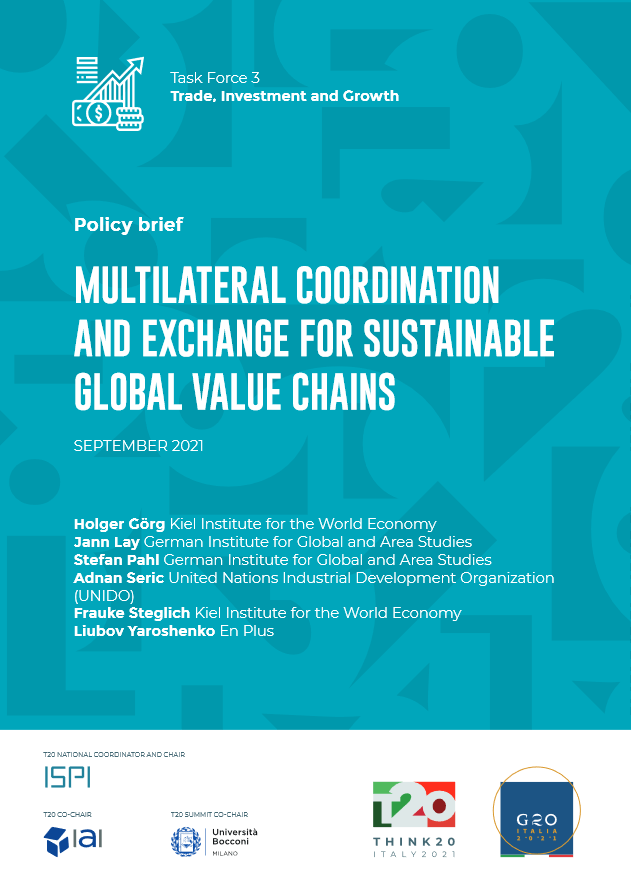
2021
Chuan Liao, Kerstin Nolte, Jonathan A. Sullivan, Daniel G. Brown, Jann Lay, Christof Althoff, and Arun Agrawal
Carbon emissions from the global land rush and potential mitigation
Global drivers and carbon emissions associated with large-scale land transactions have been poorly investigated. Here we examine major factors behind such transactions (income, agricultural productivity, availability of arable land and water scarcity) and estimate potential carbon emissions under di...
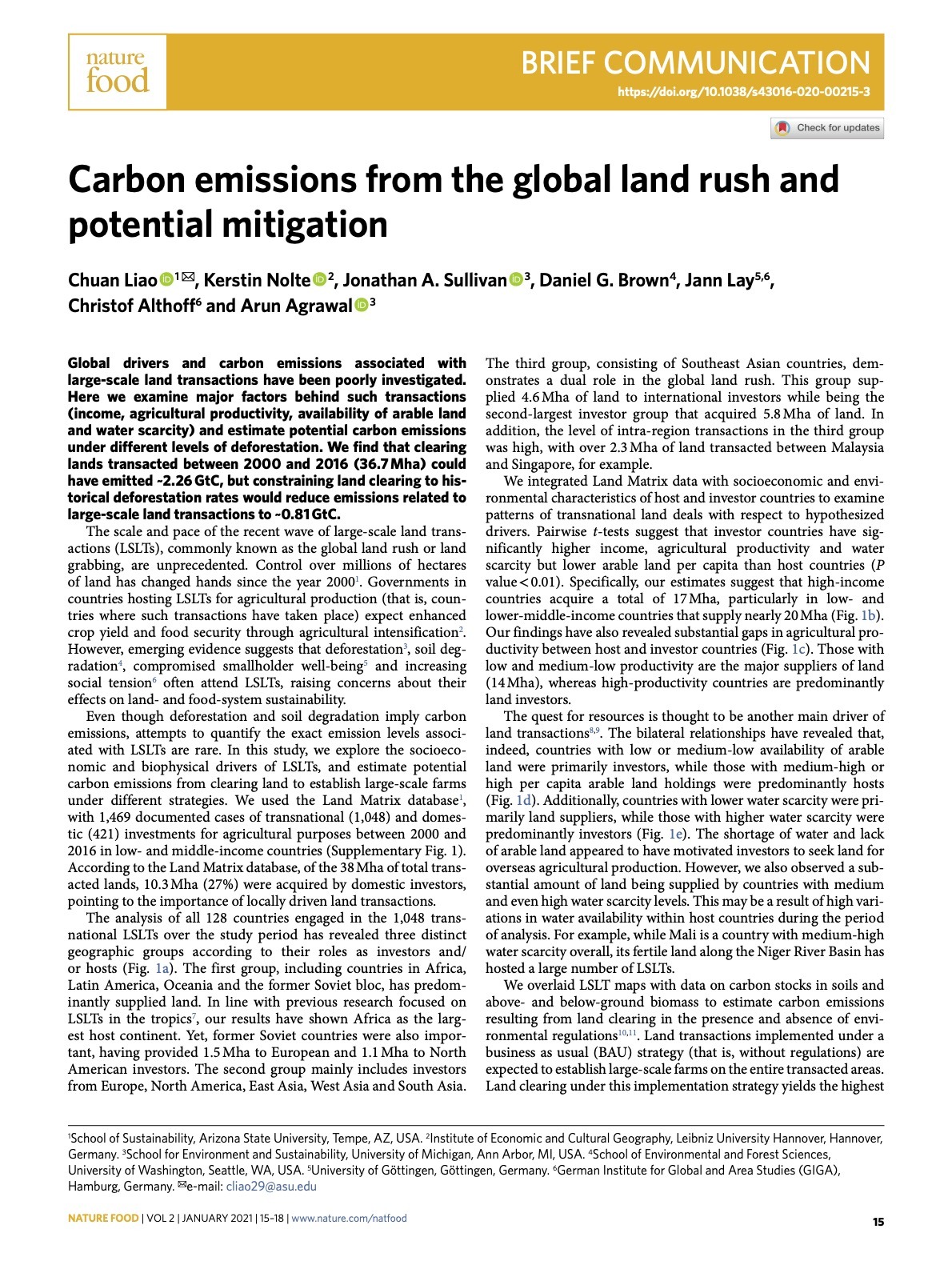
2020
Jann Lay, Tevin Tafese
Promoting private investment to create jobs: A review of the evidence
The promotion of private investment, in particular in the form of Foreign Direct Investment (FDI), has been a key component of economic development strategies since the early 1990s. Recent development policy initiatives, for example the G20 Compact with Africa (CwA) but also Germany's "Mar...
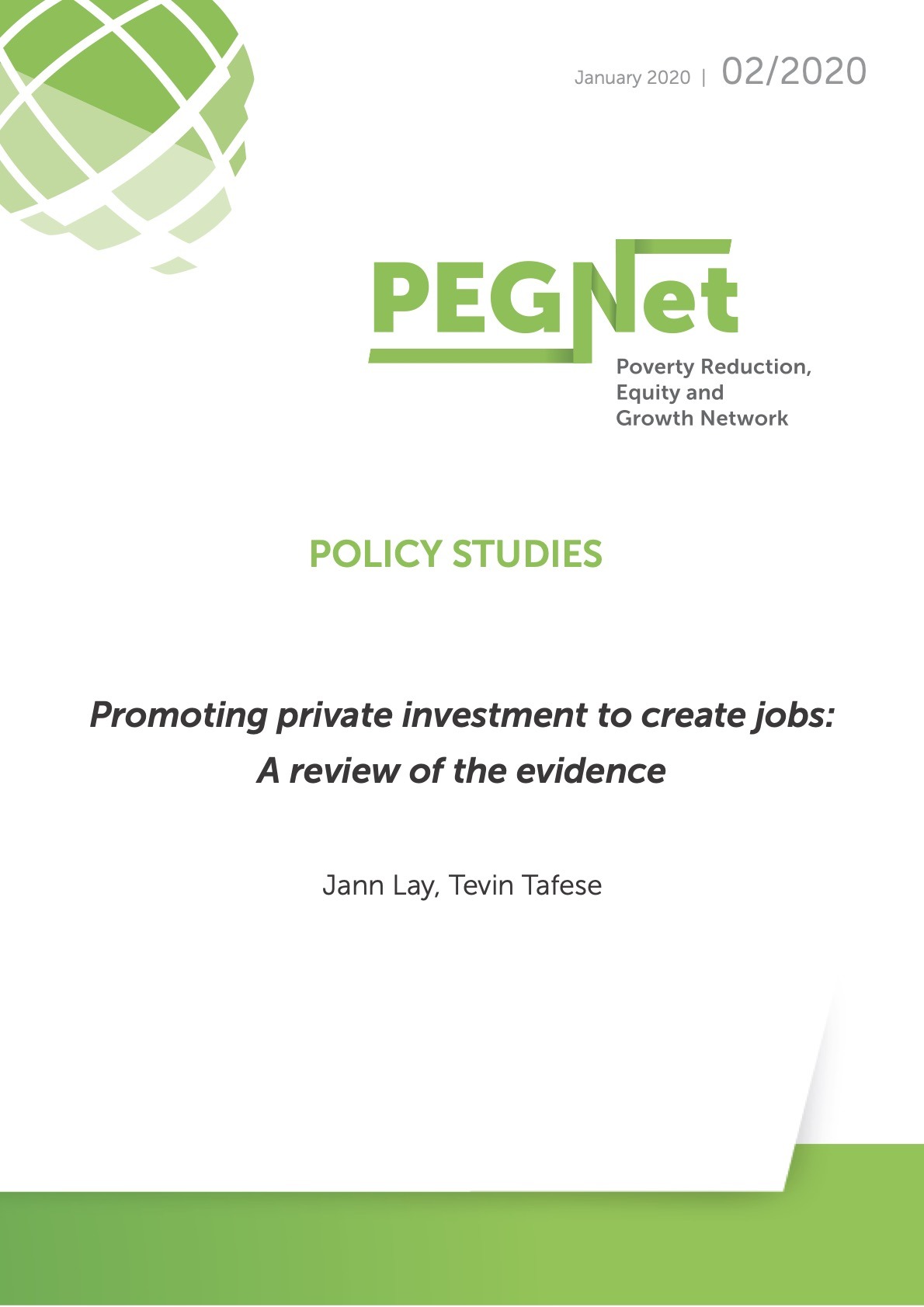
2020
Insa Flachsbarth, Jann Lay, Kerstin Nolte, Angela Harding, Ward Anseeuw, and Jeremy Bourgoin
Responsible Large-Scale Agricultural Investments in and by G20 Countries: A Call for more Transparency
Many international agricultural land investment projects are criticized because of their disrespect of land tenure rights, the few benefits they provide local populations, and the often displayed negative environmental impacts. The Group of 20 (G20) has recognized the need for more responsible land ...
